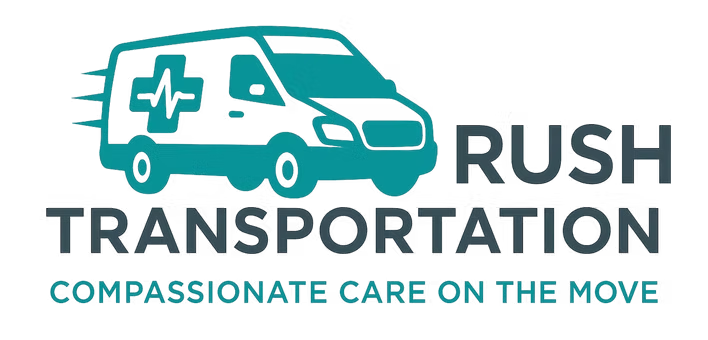Traveling for medical purposes frequently involves an invisible burden. A silent tension that persists lies beneath the surface of scheduling appointments, preparing for procedures, and anticipating outcomes. This tension affects not only patients but also their loved ones, who are currently balancing both logistics and emotions.
Medical travel can be overwhelming. Every step is crucial, from identifying the appropriate mode of conveyance to guaranteeing safety and comfort. However, the burden is alleviated when individuals are equipped with the appropriate information. Uncertainty is transformed into clarity by awareness, which in turn provides a sense of control.
Why Medical Travel Feels Heavy
Medical transportation involves more than simply getting from one location to another. It takes effort, planning, and always worrying about being on time. Patients often endure both physical pain and mental distress. On the other side, caregivers are responsible for making sure that nothing goes wrong.
This mix generally causes a low-level stress that builds up over time. For a lot of families, it seems like trudging up a hill with a delicate glass of water in their hands—careful, cautious, and never totally at peace.
Knowledge as a Source of Comfort
Most of the time, medical travel isn’t a single trip. Families, caretakers, and drivers all help make things easier. When people know they are not alone, the experience feels less isolating. Support systems operate best when everyone knows what they need to do, what is expected of them, and how to talk to each other.
A little act, like a driver explaining the way or a caretaker arranging vital papers, might make you feel better. Every amount of help counts, indicating that the trip is shared and not just one person carrying it.
The Value of Preparation
Preparation is one of the strongest shields against stress. With the right planning, medical travel becomes smoother and less unpredictable.
Here are key areas where preparation makes a difference:
- Timing: Scheduling transportation well before the appointment reduces the pressure of last-minute arrangements.
- Comfort: Knowing what comfort measures are available—such as wheelchair access or extra seating space—ensures physical needs are respected.
- Safety: Choosing transportation that prioritizes safe travel provides reassurance for both patients and caregivers.
- Clarity: Understanding routes, travel times, and waiting periods reduces the sense of uncertainty.
Each of these steps creates a chain of small victories, turning what once felt overwhelming into something far more manageable.
The Role of Support Systems
Medical travel is rarely a solo journey. Families, caregivers, and drivers all play a role in easing the burden. When people know they are not alone, the experience feels less isolating. Support systems work best when communication is clear, expectations are set, and everyone understands their role.
A simple gesture, such as a driver explaining the route or a caregiver organizing important documents, creates emotional relief. Every bit of support adds up, showing that the journey is shared, not carried alone.
Emotional Impact of Travel Stress
Stress that isn’t spoken about might extend to other parts of life. It can change how individuals sleep, feel, and even how they talk to physicians. Patients may feel tired before they get to the clinic, and caregivers may feel bad for not being able to ease the stress.
It’s crucial to recognize how this affects your emotions. It acknowledges the silent battles that many individuals endure and facilitates the exploration of healthy coping mechanisms. People may look for the correct information and ask for help without reluctance if they know that stress is normal.
How Knowledge Reduces Anxiety
When medical travel is guided by knowledge, the difference is noticeable. Anxiety lessens because people know what lies ahead. Families can focus on being present for each other rather than worrying about logistics. Patients can focus on their health rather than fearing delays.
Knowledge creates a bridge between uncertainty and calm. With each piece of reliable information, the journey becomes less about stress and more about progress.
Practical Tips for Easing Medical Travel Stress
Practical steps turn knowledge into action. These small yet powerful habits can transform stressful medical trips into smoother experiences:
- Keep a travel checklist with essentials like medical documents, snacks, and comfort items.
- Communicate clearly with transportation providers about any special needs in advance.
- Allow extra time for traffic, weather, or unexpected delays.
- Use reminders to stay on track with appointments and pickup times.
- Involve loved ones in sharing responsibilities, so no one feels overloaded.
Each tip may seem simple, but together they form a safety net that protects against last-minute stress.
Shaping a More Supportive Future
More families will realize that medical travel doesn’t have to be a huge hassle as more people become aware of it. The experience may be easier and more tolerable if everyone is prepared, communicates well, and takes responsibility. People who are sick should be comfortable. Caregivers need a break. And they should feel encouraged every step of the way.
Final Verdict
Medical travel can be quite stressful; however, it is beneficial to acquire knowledge about it. By preparing in advance, seeking precise information, and utilizing support systems, families can mitigate the tension, anxiety, and burden of the experience.
Companies such as Rush Transportation Services LLC are crucial to this endeavor. Their presence underscores the significance of dependable transportation that comprehends the emotional and practical components of medical travel. This information implies that patients and their families may embark on a journey that results in increased comfort and reduced tension.


